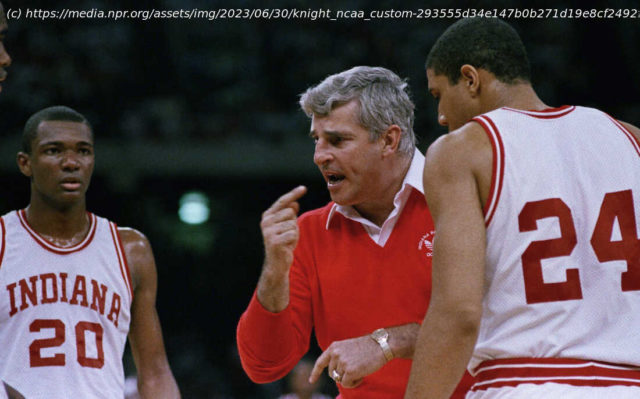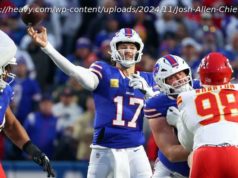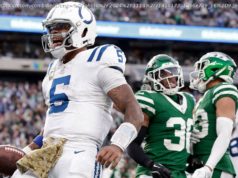Nicknamed « the General, » Knight spent nearly three decades at Indiana University and several seasons at Texas Tech. His teams racked up wins, but he was controversial on and off the court.
Basketball Hall of Famer Bobby Knight, whose unapologetic style earned legions of fans and critics alike, died Wednesday at his home in Bloomington, Ind., according to a statement released by his family. He was 83.
Knight was a legendary figure in college basketball. His record earned many admirers and nicknames. To his fans, he was called « the General. » Knight was one of the United States’ winningest college coaches, with more than 900 wins by the end of his career.
He also had a reputation for being blunt and profane, with an explosive temper that often led to volatile behavior that marred his achievements.
All that made for a complicated legacy.
Sports writer John Feinstein, who profiled Knight and the Hoosiers in his book A Season on the Brink, spoke with NPR in 2008, after Knight had retired.
« When he was good, there was no one better than Bob Knight. He was generous. He cared about his players. He graduated his players. He was the best, » said Feinstein. « When he was bad, there were few worse. »
Yet Knight was loved by many of his former players and by plenty of fans — especially in basketball -loving Indiana, where he spent most of his coaching career.
He was born Robert Montgomery Knight on Oct. 25, 1940, in Massillon, Ohio, and he grew up in Orrville — both small towns about 20 to 30 miles outside Akron. Knight played basketball in high school and college; he played for Ohio State University under eventual Hall of Fame coach Fred Taylor when the Buckeyes won the NCAA championship in 1960.
Knight’s own head coaching career began at West Point. At age 24, he was the youngest varsity coach in NCAA history. In 1971, Indiana University hired him, and he worked there for 29 years.
Knight was noted for his disciplined, hard-nosed approach and for teaching the team his motion offense — a game philosophy where players reacted to the defense, set screens and passed the ball until a teammate was open, instead of relying on set plays.
He also emphasized academics, making sure his players studied and went to class.






